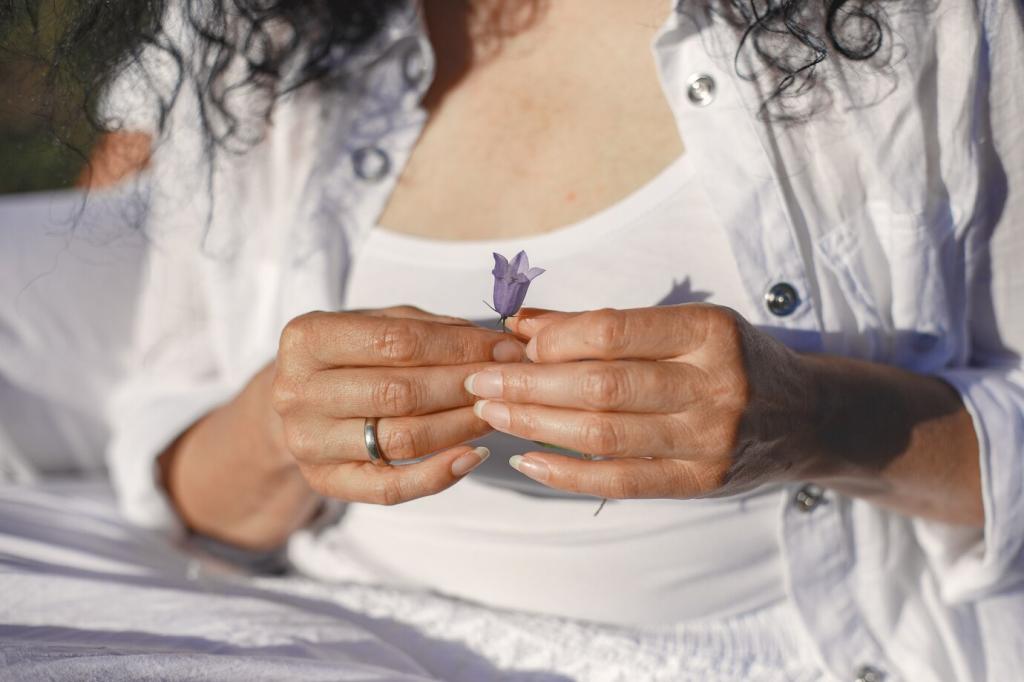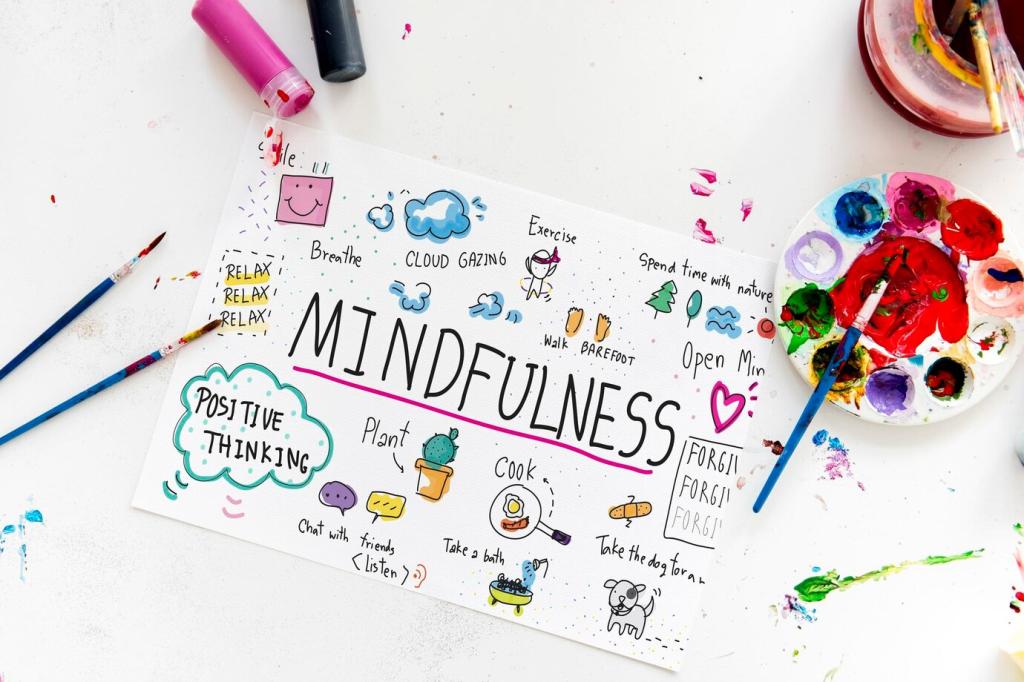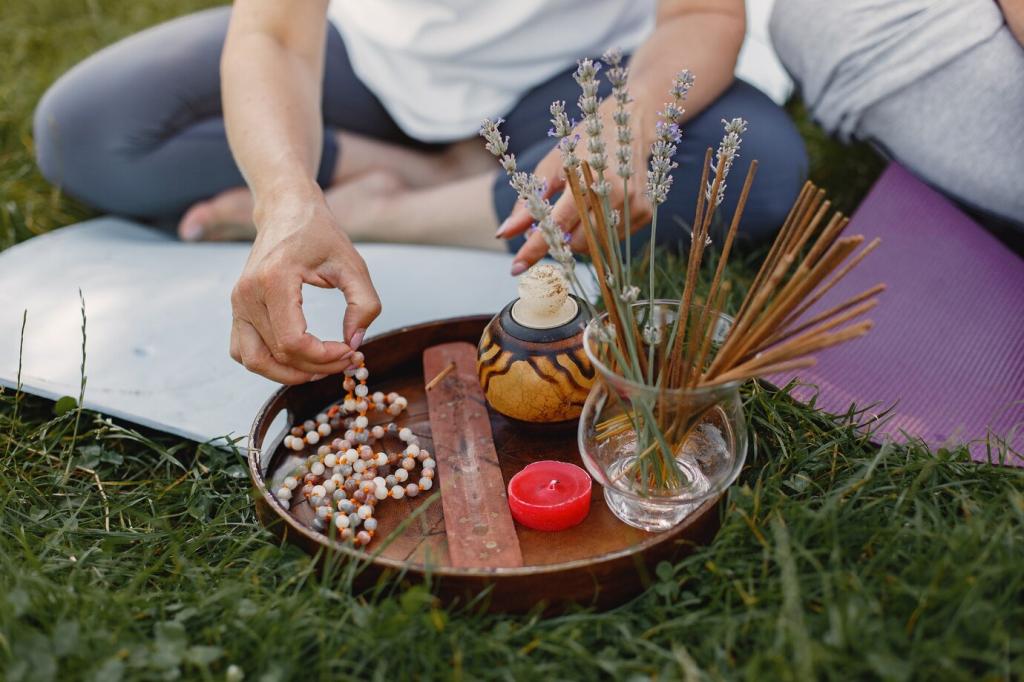
Quiet the Storm: Mindfulness Meditation for Stress Reduction
Selected theme: Mindfulness Meditation for Stress Reduction. Step into a calmer, kinder relationship with your life. Here you will find practical tools, gentle science, and lived stories that help you breathe easier, think clearer, and meet stress with steady compassion. Subscribe for weekly mindful prompts and join the conversation below.

When stress hits, your nervous system floods the body with adrenaline and cortisol, quickening the heart and narrowing attention. This response once saved our ancestors from real danger. Today, mindfulness helps recalibrate, signaling safety, widening perception, and inviting the body to release tension that has outlived its purpose.

Mindfulness slows the runaway train of rumination by anchoring attention in present sensations. Breath, sounds, and bodily feelings become stabilizing landmarks. As attention steadies, thoughts loosen their grip, the limbic system calms, and your prefrontal cortex returns online to respond rather than react.

After a brutal call, I gripped the stair rail and felt my pulse drumming. One deliberate inhale, one longer exhale, palms noticing cool wood. The world widened; urgency softened. That single mindful pause did not fix everything, but it kept me from saying something I would regret.
Getting Started: Your First Mindfulness Sessions
Choose a spot you associate with gentleness: a chair by the window, a cushion on the floor, or even a parked car before heading inside. Reduce distractions, silence notifications, and let light or a calm scent signal your brain that this is a place of rest and renewal.
Sit upright yet relaxed, shoulders soft, chin slightly tucked. Let your hands rest easily. Breathe naturally through the nose if possible. Feel the belly rise and fall. When your mind wanders, gently return to breath without scolding yourself. That return is the heart of the practice.
Set a gentle timer. Close your eyes or soften your gaze. Count five breaths, feeling the full in-breath and a longer out-breath. Notice three sounds, three body sensations, then return to your breath. End by thanking yourself for the effort, however imperfect it felt today.
Lie down or sit comfortably. Move attention from toes to head, region by region. When you find tension, breathe around it, letting warmth spread. You do not need to fix anything; you simply notice and allow. Over time, your body learns to release without being commanded.
Techniques for Busy Minds



Making It Stick: Habits, Compassion, and Consistency
Tie practice to an existing routine: After I brush my teeth, I will sit for three minutes. Or, When I park at work, I will take five mindful breaths. Clear cues reduce decision fatigue and help mindfulness become an ordinary, welcome part of your day.
Making It Stick: Habits, Compassion, and Consistency
Use a simple calendar checkmark or a notes app. Celebrate streaks, but value returns even more. The goal is not perfection; it is remembering. Share your wins and wobbles in the comments to encourage others and invite supportive accountability from this community.
Evidence and Reflection: Seeing the Change
Studies on mindfulness-based stress reduction show improvements in anxiety, sleep, and perceived stress, with physiological shifts like lower cortisol over time. While results vary, consistent practice builds resilience. You are training attention and kindness, two capacities that turn down the volume on stress.
Evidence and Reflection: Seeing the Change
Each week, rate sleep quality, muscle tension, patience, and mood from one to five. Note one stressful moment and how you responded. Over a month, patterns emerge. Use them to adjust practice lengths, times, and techniques to better meet your real life, not an ideal schedule.
Evidence and Reflection: Seeing the Change
Tell us about a moment when mindfulness shifted your stress by one degree. Your anecdote could be a lighthouse for someone else. Comment below, ask questions, and subscribe for new practices. Together, we build a gentle archive of courage and practical wisdom.
Sit quietly and repeat: May I be safe. May I be peaceful. May I meet this moment with ease. Then offer the same to someone you care about, and eventually to a difficult person. Stress diminishes when the heart feels included, not exiled, from our attention.

